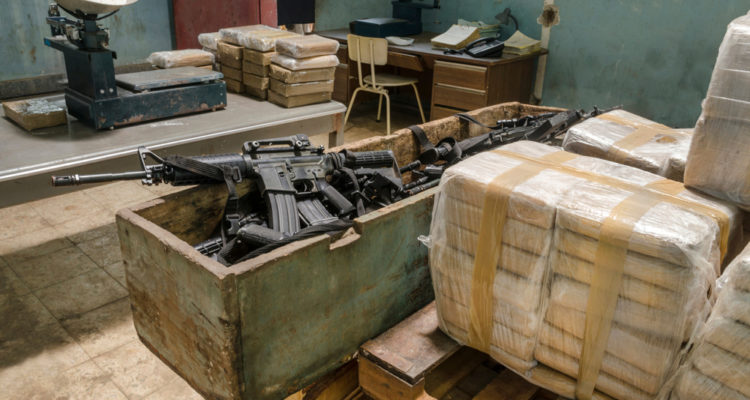Saudi Arabia news network Al Arabiya reveals how the Iran-backed Lebanese terror group is embedded in the heart of South America’s illegal drug world.
By World Israel News Staff
A Saudi Arabian network is airing a comprehensive investigation showing how the Lebanese terrorist organization Hezbollah has managed to plant its people in the heart of the cartel war and earn millions of dollars, Israel Hayom reported Thursday.
The Iran-sponsored terrorist group is known for its willingness to use Lebanon’s drug growth and trafficking market to fill its coffers, but the documentary that will be aired is expected to reveal the organization’s tremendous effort to win a share of the world’s largest and most lucrative drug market.
The Al Arabiya special entitled “Hezbollah’s Jihad Narcotics” exposes Hezbollah’s infiltration of the Colombian drug cartels and the tremendous profits it makes.
According to details already released from the film, Hezbollah activists began to connect to the drug cartels in Colombia starting in the early 1990s, but their great success came only after 1995, when the Cali drug cartel was crushed by authorities and the drug production market split into several much smaller cartels.
Hezbollah activists quickly took advantage of the situation and used Lebanese immigrant relations with senior government officials and drug cartels to take part in the cocaine production process as well as its shipment to the United States. The group operated by Hezbollah focused on the Venezuelan border and exploited Hezbollah’s international ties to distribute the drugs.
According to the documentary, American and Colombian investigators in 2008 were able to trace Hezbollah’s network of dealers and distributors and compile a list of personalities and institutions that helped launch it. But the exposure of the network caused it to be dismantled and its heads were never prosecuted.
According to some allegations, the failure to arrest those responsible sparked a dispute between law enforcement agencies, but another claim says the Obama administration delayed the operation for fear of sabotaging the nuclear deal with Iran.
In the past decade, Iran has provided Hezbollah with over $200 million a year, but since the U.S. sanctions on Iran were renewed in 2017 and other sanctions were imposed on Lebanese banks, that amount has shrunk significantly. Experts now estimate that Hezbollah will work on other fronts to get money for its budget.
A report by The Washington Institute said the Drug Enforcement Administration (DEA) treats Hezbollah as a special target in part due to its combination of widespread political, military, and criminal activities as well as its deadly targeting of Americans. Prior to the September 11 attacks, Hezbollah had killed more Americans than any other terror group.
The report said the Trump administration considers Hezbollah a high national security priority and has spearheaded a robust, cross-government effort aimed at stifling its activities.





